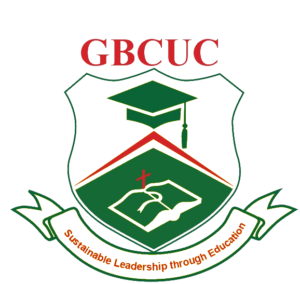
PROGRAM INFORMATION
TYPE: BACHELOR DEGREE
DURATION: 4 YEARS
ACCREDITATION: HEA, ZQF LEVEL 7
BACHELOR OF ARTS WITH EDUCATION (ENGLISH LANGUAGE AND RELIGIOUS STUDIES)
A Bachelor of Arts with education degree (or B.A.Ed.) is a degree awarded at George Benson Christian University College for completion of an undergraduate-level study in humanities. Bachelor of Arts with education degree requires that students complete the degree study program in 4 years. The degree is the most common undergraduate learning program offered by most universities in Southern Africa Development Community (SADC) and worldwide.
The Bachelor of Arts with education degree provides the content, knowledge for two teaching areas and provides the necessary skills, knowledge and practical experiences required for teacher registration and employment. The Bachelor of Arts with education degree offers a wide range of teaching areas. Students benefit from a thorough preparation for their teaching areas combined with, and by, their professional studies in the area of education. The degree focuses on developing teachers who can teach well; who have sound practical teaching skills; knowledge of two teaching subjects to the level of a degree major, and the ability to develop as professional teachers through reflection and action, teaching and learning in science, curriculum and pedagogy.
Enrolling in a B.A.Ed. degree program translates to making a significant investment in one`s professional career. In addition to enhanced career prospects that can be gained by taking a Bachelor of Arts with education degree program. Students also develop valuable personal skills and fulfill a crucial prerequisite to master`s degree studies.
Specialist humanities teachers are on demand in Zambia and beyond. The degree qualifies students to teach at secondary school level; grades 8 to 12 including “A” level courses. Students have an opportunity to travel to both urban and rural areas for a teaching placement and learn to teach a diverse range of students in varied educational settings. In this program students will;
- Learn how to plan lessons, asses’ students, and manage a classroom
- Link theory and practice through one school term supervised school experience.
- On completion of this learning program, students can work apart from teaching at secondary school also target other career opportunities such as;
- Varied industrial jobs
- Private colleges of education tutors
- Universities
- Education exhibition organizers
- Education publishing houses
- Education policy analysts
Program Outline
| YEAR 1 | |
| EDU 1121 | INFORMATION AND COMMUNICATION TECHNOLOGY |
| LLE 1131 | ACADEMIC WRITING, STUDY AND COMMUNICATION SKILLS |
| LLE 1132 | STUDIES IN WRITING SKILLS AND LITERATURE |
| RES 1151 | INTRODUCTION TO WORLD RELIGIONS |
| EDU 1222 | HISTORY AND PHILOSOPHY OF EDUCATION |
| LLE 1233 | INTRODUCTION TO LANGUAGEAND LINGUISTICS |
| LLE 1234 | INTRODUCTION TO PROSE FICTION, POETRY AND DRAMA |
| HIS 1151 | INTRODUCTION TO THE STUDY OF HISTORY AND HISTORIOGRAPHY |
| HIS 1152 | PRE-COLONIAL HISTORY OF ZAMBIA |
| RES 1151 | INTRODUCTION TO WORLD RELIGIONS |
| HIS 1253 | HISTORY OF CENTRAL AFRICA |
| HIS 1254 | 19TH CENTURY SOUTHERN AFRICA |
| RES 1252 | AFRICAN TRADITION RELIGION |
| YEAR 2 | |
| EDU 2121 | SPECIAL EDUCATION, GUIDANCE AND COUNSELLING |
| LLE 2131 | ENGLISH PHONETICS, PHONOLOGY AND MORPHOLOGY |
| LLE 2132 | CLASSICAL, ROMANTIC AND MODERN CRITICISM |
| RES 2151 | AFRICAN CONVERSION TO CHRISTIANITY AND ISLAM |
| EDU 2222 | EDUCATIONAL PSYCHOLOGY |
| LLE 2233 | ENGLISH SYNTAX |
| LLE 2234 | AFRICAN PROSE FICTION – POST COLONIAL UP TO PRESENT |
| RES 2252 | RELIGION AND HUMAN DEVELOPEMENT |
| EDU 2123 | SPECIAL EDUCATION, GUIDANCE AND COUNSELLING |
| HIS 2151 | HISTORY OF SOUTHERN AFRICA FROM 1800-1965 |
| HIS 2152 | HISTORY OF CENTRAL AFRICA-COLONIZATION TO INDEPENDENCE |
| RES 2151 | AFRICAN CONVERSION TO CHRISTIANITY AND ISLAM |
| EDU 2224 | EDUCATIONAL PSYCHOLOGY |
| HIS 2253 | HISTORY OF ZAMBIA SINCE INDEPENDENCE |
| HIS 2254 | WORLD HISTORY-1850-1900 (NATION BUILDING) |
| RES 2252 | RELIGION AND HUMAN DEVELOPEMENT |
| YEAR 3 | |
| EDU 3121 | EDUCATIONAL RESEARCH METHODS |
| HIS 3151 | THE ECONOMIC HISTORY OF AFRICA |
| HIS 3152 | ECONOMIC HISTORY OF ZAMBIA |
| RES 3151 | ISLAM IN AFRICA |
| EDU 3222 | SOCIOLOGY OF EDUCATION |
| HIS 3253 | HISTORICAL RESEARCH METHODS |
| HIS 3254 | HISTORY TEACHING METHODS |
| RES 3252 | HISTORY OF CHRISTIANITY IN AFRICA |
| YEAR 4 | |
| EDU 4121 | THEORY AND PRACTICE OF EDUCATION |
| HIS 4151 | WORLD HISTORY-RIVALRY AMONG MAJOR WORLD EMPIRES AND NATIONS FROM 1870-1918 |
| HIS 4152 | AFRICA SINCE 1945 |
| RES 4151 | TEACHING METHODS |
| EDU 4222 | EDUCATIONAL LEADERSHIP AND MANAGEMENT |
| HIS 4254 | ADVANCED HISTORY TEACHING METHODS |
| RES 4252 | SOCIOLOGY OF RELIGION |
Programme Learning Outcomes
This course is designed so that on completion of the course students should be able to:
- To successfully and confidently conduct teaching practice by adhering to the professional standards, values and ethics of the teaching profession.
- To demonstrate the effectiveness of the professional commitment and knowledge they acquire.
- To identify the pupils who are in need of help in school environment and behavioural challenges and build a career in teaching profession.
- To develop a thorough understanding of learning difficulties, the root causes and effects on the individual.
- To develop skills of teaching, learning, and assessment that enable effective and efficient practice of professional teaching and learning.
- To acquire knowledge of human development and development of social, economic, and cultural institutions; and of the interactions of all these factors
- To guide the student community to identify their present learning ability and to find out the relevant solutions
- To understand and apply the various approaches and tools for undertaking educational research
- To obtain knowledge about the impact of cross cutting issues such as Gender, ethnicity etc. and the effects on human learning.
- To understand the need and importance of lifelong learning in teaching profession
- To develop professional competences with ethical perspectives relevant to practice in global contexts, with an interest of life-long learning along with the negotiation of change.
- To demonstrate in depth teaching subject knowledge content of various teaching subjects that come under this course.
- Create Understanding of professional, ethical, legal, security and social issues and responsibilities.
- Enabling them to analyse problem to encounter in social research aspects and define the solution.
- Demonstrate creativity in research undertakings.
- Recognize the need to engage in continuing professional development
- To continue their higher studies in the same discipline at master and doctoral levels.
- To demonstrate that they are qualified and talented professional teachers and ready to join the teaching profession.
